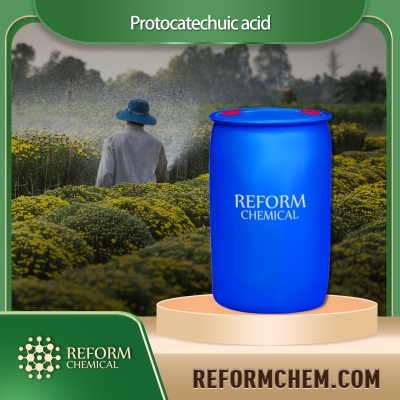The use and function of Aconitum
-
Last Update: 2020-04-03
-
Source: Internet
-
Author: User
Search more information of high quality chemicals, good prices and reliable suppliers, visit
www.echemi.com
Aconite is a scientific name of Aconitum or Aconitum pratense, which belongs to the Ranunculaceae family Its common names also include Aconitum root, helmet flower, aconite flower, niubian and caopus, etc This is a kind of perennial plant with a shape similar to delphinium, which can grow to 0.6 to 1.5 meters high Aconitum is characterized by helmet shaped blue or purple flowers, but occasionally white, pink or yellow flowers There are more than 100 varieties of Aconitum, which can be found in the United States and Canada, as well as in Asia, Africa and Europe under different climatic conditions This plant contains poisonous alkaloids such as aconitine - traditional medicinal value people have used Aconitum as poison and medicine since ancient times Although all parts are poisonous, the rhizome is the most poisonous part of the plant Aconite extract (or essence) is often used as a medical oral medicine to have a fever associated with cold, lung inflammation, laryngitis and asthma, and has the effects of relieving pain, reducing inflammation and lowering blood pressure In addition, it is a diuretic and has a sedative effect In traditional Chinese medicine, Aconitum root is usually mixed with licorice or ginger Aconitum extract was once used as arrow poison In the past, Aconitum was also the most commonly used tincture in western countries It can be used as foaming medicine liniment to relieve neuralgia, rheumatism and sciatica As a partial or homeopathy, Aconitum can also be used to treat fear, anxiety and restlessness In addition, this herb can be used to treat sudden fever, dry symptoms, cold or hot weather, tingling, chills and numbness, flu or cold stuffy nose, and headache - it is suggested that the toxicity of Aconitum is very high 2 mg pure Aconitum or 1 g plant will cause respiratory center or myocardial paralysis, which may lead to death Therefore, this herb should be used with caution The toxicity of fresh Aconitum is very high, and its safe dose depends on the processing Many varieties of Aconitum used in traditional Chinese medicine can only be used as medicine after processing As both oral and external use have side effects, Aconitum is not recommended for pregnant women and lactating women.
This article is an English version of an article which is originally in the Chinese language on echemi.com and is provided for information purposes only.
This website makes no representation or warranty of any kind, either expressed or implied, as to the accuracy, completeness ownership or reliability of
the article or any translations thereof. If you have any concerns or complaints relating to the article, please send an email, providing a detailed
description of the concern or complaint, to
service@echemi.com. A staff member will contact you within 5 working days. Once verified, infringing content
will be removed immediately.







